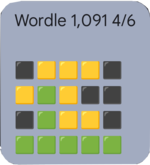
Mergesort Investigation 14 - count of comparisons
My recursive mergesort algorithm, and the wikipedia bottom-up) algorithm read and write the same list nodes in the same order, for list lengths that are powers of two. Something other than mere data reading and pointer writing causes abrupt performance drops at linked list lengths of 2N+1 nodes.
I decided to count the number of comparisons used in merging lists. I had to write a different program so as to use an unsorted list with data in the same randomly chosen order for each of the three algorithms.







